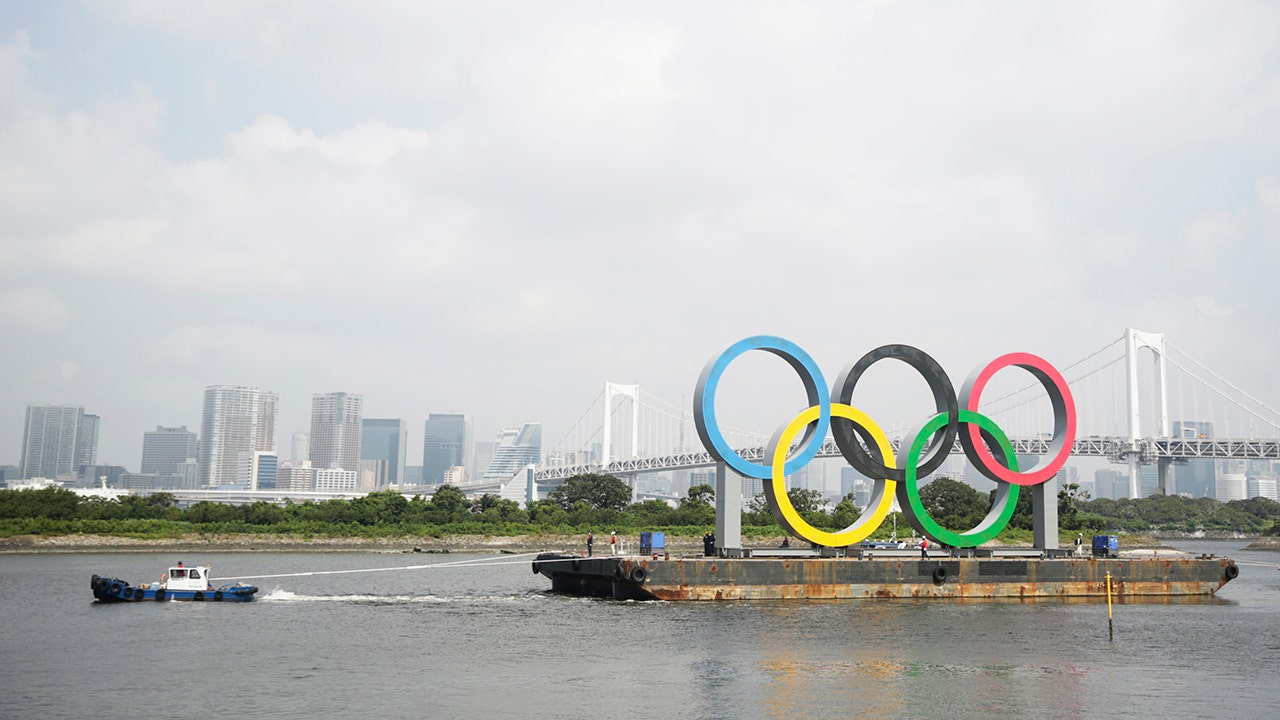
[ad_1]
The rescheduled Tokyo Olympics next year won’t be like any other, especially for non-Japanese fans if they are allowed to enter amid the COVID-19 pandemic.
Tokyo Organizing Committee CEO Toshiro Muto, after a meeting Thursday on infection countermeasures, confirmed for the first time that a limited number of non-Japanese fans could be allowed to attend.
But there will be strict guidelines, rule books to follow, and health apps to track fans and monitor the spread of the infection.
CLICK HERE FOR MORE SPORTS COVERAGE ON FOXNEWS.COM
“Next spring we will be offering measures for all spectators, including non-Japanese residents,” Muto said, speaking in Japanese during an online briefing. “For the non-Japanese, we have to be sure to secure one for them too.”
Initially, Muto said it would be difficult to quarantine incoming fans, then later suggested it could happen.
“As for overseas spectators, whether they have to go through a 14-day quarantine or not, whether we can waive it or not will depend on the situation,” Muto said. “It is possible that this quarantine will be lifted if they meet certain conditions.”
Organizers and the International Olympic Committee have given themselves at least five more months – in the Northern Hemisphere Spring – to begin finalizing how they will host the Olympics for 11,000 athletes and tens of thousands of officials, judges, sponsors, media and broadcasters.
It was early spring of this year that the Games were postponed, unable to see a way forward and are now slated to open on July 23, 2021.
“The anguish of spectators about not knowing whether they can actually go to the games or not is understandable,” Muto said. “We would like to be attentive to spectators as much as possible while we take preventative measures at the same time to be able to accommodate as many spectators as possible.”
IOC President Thomas Bach confirmed during a briefing in Switzerland on Wednesday that he would be in Tokyo next week, his first visit since the Olympic Games were postponed. Bach gave a firm ‘no’ answer when asked if a possible cancellation of the Olympics would be discussed in Tokyo.
Bach is expected to meet with new Prime Minister Yoshihide Suga, and hold talks with Tokyo Governor Yuriko Koike, Tokyo Organizing Committee Chairman Yoshiro Mori and others related to the Olympics.
Muto was asked if foreigners visiting Japan would follow the rules. Japan has been largely successful in combating the virus with just over 1,800 deaths reported.
“I think it is difficult to control their movements and behavior,” said a Japanese reporter, speaking in Japanese.
Muto recognized the problem. Almost everyone in Japan wears a mask – almost everywhere.
“After entering Japan, we can’t follow spectators and consumers in general like we do with athletes, so what should we do?” Muto said. “We have to make sure there is enough testing before they enter the country. This is a key point. “
He said organizers will find ways to track upcoming fans, suggesting a call center and other measures. He also stressed that the routes between metro stations and neighboring sites would be monitored with rules to be followed.
“For spectators, once they enter Japan, there is a limit to what we can do,” said Muto.
Muto said there is no decision yet on how many fans will be allowed into theaters. Several baseball stadiums in Japan have experimented with an 80% fan capacity.
“Whether we have full capacity or not, the decision has yet to be made as various experiments are underway,” Muto said.
He warned that they could be quiet places.
“We may ask spectators to refrain from shouting and speaking aloud. But we did not come to a conclusion, ”he said.
Muto said he expected the last budget for the organizing committee to be available before the end of the year. A big hole could develop if ticket sales are reduced. The tickets bring in about $ 800 million to the organizers, the third source of revenue.
Tokyo says it is officially spending $ 12.6 billion to prepare for the Olympics, although a government audit last year said it was double. Everything but $ 5.6 billion is public money.
In addition, it is estimated that the one-year delay in Japan will cost an additional $ 2 billion to $ 3 billion. The IOC said it would contribute around $ 650 to defer costs, leaving the rest to Japanese taxpayers. There could also be additional costs related to vaccines, tests and additional health care that will be required.
[ad_2]
Source link